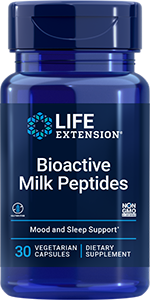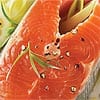Higher plasma nutrient levels associated with increased brain volume Tuesday, January 3, 2012. In an article published online on December 28, 2011 in the journal Neurology, Gene Bowman, ND, MPH, of Oregon Health & Science University in Portland and his colleagues report a beneficial effect on brain volume for healthy dietary patterns as reflected by plasma nutrient levels in older men and women. One hundred four participants with an average age of 87 who had few risk factors for cognitive impairment were tested for 30 nutrient biomarkers including vitamins B, C, E and E, omega-3 fatty acids and trans fatty acids. All subjects were evaluated for memory and cognitive function, and 42 participants also underwent magnetic resonance imaging (MRI) scans to assess brain volume, which frequently declines with aging. While a pattern of high plasma levels of vitamins B1, B2, B6, B12, C, D and E, and folate, or high plasma marine omega-3 fatty acids were each associated with greater brain volume and better cognitive function, having an increased plasma level of trans fat was associated with reductions in both brain volume and test scores. The researchers attributed 17 percent of the variation in cognitive test scores and 37 percent of the variation in brain size to nutrient status. The study is among the first to assess the relationship between a wide range of blood nutrient levels with brain volume and function. "This approach clearly shows the biological and neurological activity that's associated with actual nutrient levels, both good and bad," stated coauthor Maret Traber, who is a principal investigator with the Linus Pauling Institute. "The vitamins and nutrients you get from eating a wide range of fruits, vegetables and fish can be measured in blood biomarkers. I'm a firm believer these nutrients have strong potential to protect your brain and make it work better." "These findings are based on average people eating average American diets," she added. "If anyone right now is considering a New Year's resolution to improve their diet, this would certainly give them another reason to eat more fruits and vegetables." Dr Bowman remarked that "These results need to be confirmed, but obviously it is very exciting to think that people could potentially stop their brains from shrinking and keep them sharp by adjusting their diet." |
 |
| At the Radiological Society of North America's meeting on November 30, Cyrus Raji, MD, PhD of the University of Pittsburgh reported the results of a study which found a relationship between increased fish intake and a lower risk of developing mild cognitive impairment as well as Alzheimer's disease in older men and women. The study's 260 subjects were selected from participants in the Cardiovascular Health Study, which was designed to identify factors related to heart disease and stroke. Dietary questionnaires completed by the subjects were analyzed for the type and frequency of fish consumed. Brain structure was evaluated by magnetic resonance imaging (MRI) ten years after enrollment. Increased weekly intake of baked or broiled fish was associated with greater gray matter brain volume in several areas, which was in turn associated with a significantly lower risk of developing cognitive decline or Alzheimer's disease. "This is the first study to establish a direct relationship between fish consumption, brain structure and Alzheimer's risk," Dr Raji announced. "The results showed that people who consumed baked or broiled fish at least one time per week had better preservation of gray matter volume on MRI in brain areas at risk for Alzheimer's disease." "Working memory, which allows people to focus on tasks and commit information to short-term memory, is one of the most important cognitive domains," he added. "Working memory is destroyed by Alzheimer's disease. We found higher levels of working memory in people who ate baked or broiled fish on a weekly basis, even when accounting for other factors, such as education, age, gender and physical activity." "Consuming baked or broiled fish promotes stronger neurons in the brain's gray matter by making them larger and healthier," Dr Raji concluded. "This simple lifestyle choice increases the brain's resistance to Alzheimer's disease and lowers risk for the disorder." |
|

|  | Bioactive Milk Peptides
Item #01512 |  | | Bioactive Milk Peptides (Lactium®) is a cutting-edge nutrient complex consisting of patented bioactive peptides found naturally in milk. Used widely in Europe to promote sustained and restful sleep patterns, published studies reveal that these bioactive milk peptides also promote relaxation, help with stress and support daytime cognition. Bioactive Milk Peptides can be used during the daytime to help with stress or before bedtime to support relaxation. Each capsule contains 150 milligrams of the same patented formula Europeans have used for years to help with sleep and stress-related issues. | |  | Bright Eyes III
Item #00893 |  | | As we get older, our eyes become vulnerable to a variety of insults that can cause irritation, dry eye, and structural problems. Applying lubricating eye drops several times a day can alleviate discomfort. The Brite Eyes III formula contains two proven lubricants (hydroxypropyl-methylcellulose and glycerin) that are FDA-approved for ophthalmic use without irritation. The Brite Eyes III formula also contains the antioxidant N-acetyl-carnosine, which helps protect the active ingredients against glycation. A box of Brite Eyes III contains two individual vials that hold five milliliters each. This type of packaging in two individual vials reduces the risk of bacterial contamination. And having two vials also makes it convenient for consumers to keep Brite Eyes III readily accessible at home, in the office, purse or pocket ... or anywhere access to soothing eye drops is needed. | | |












